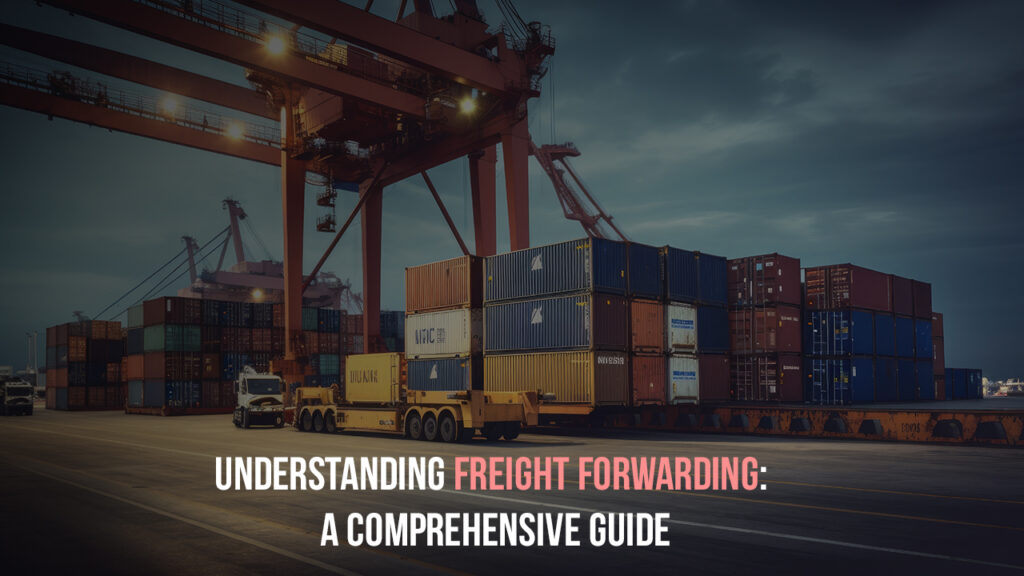What is Freight Forwarding?
Freight forwarding is a critical service in the global supply chain, enabling the efficient transportation of goods from one location to another. A freight forwarder acts as an intermediary between the shipper and transportation services, coordinating the logistics required for moving cargo by land, sea, or air. Their role encompasses managing the complexities of international shipping, including customs documentation, insurance, and compliance with various regulations.
Key Benefits of Using a Freight Forwarder
Expertise in Logistics
Freight forwarders possess extensive knowledge of logistics and international trade. They leverage their expertise to streamline shipping processes, ensuring that goods are transported in the most efficient and cost-effective manner. This expertise includes route optimization, selection of the best transportation modes, and negotiation of favorable rates with carriers.
Hassle-Free Documentation
International shipping involves a plethora of documentation, such as bills of lading, customs declarations, and commercial invoices. Freight forwarders handle all these documents, reducing the risk of errors and delays. Their familiarity with the necessary paperwork ensures that shipments comply with international regulations, avoiding potential fines and hold-ups.
Cost Savings
By consolidating shipments from multiple clients, freight forwarders can secure bulk discounts from carriers, passing on these savings to their customers. Additionally, their ability to choose the most efficient routes and modes of transport minimizes costs associated with shipping. This can be particularly beneficial for small and medium-sized businesses looking to optimize their supply chain expenses.
How Freight Forwarding Works
Initial Consultation and Planning
The process begins with an initial consultation where the freight forwarder assesses the shipper’s needs, including the type of goods, destination, and delivery timeframe. Based on this assessment, the forwarder creates a customized shipping plan that outlines the most efficient and cost-effective method for transporting the cargo.
Booking and Documentation
Once the plan is finalized, the freight forwarder books space with carriers, whether they be shipping lines, airlines, or trucking companies. They also handle the preparation and submission of all necessary documentation, ensuring compliance with international shipping regulations.
Cargo Handling and Transport
Freight forwarders coordinate the pickup, packing, and loading of goods. They ensure that the cargo is properly labeled and secured for transport. Throughout the journey, they monitor the shipment’s progress, providing updates to the shipper and addressing any issues that arise.
Customs Clearance and Delivery
Upon arrival at the destination port, the freight forwarder manages customs clearance, ensuring that all duties and taxes are paid and that the shipment complies with local regulations. After clearance, they arrange for the final delivery to the consignee’s location, completing the end-to-end shipping process.
Choosing the Right Freight Forwarder
Industry Experience
When selecting a freight forwarder, it’s crucial to consider their experience and track record in the industry. An established forwarder with a history of successful shipments can provide peace of mind and ensure reliable service.
Network and Partnerships
A forwarder’s network of partnerships with carriers, customs agents, and local logistics providers can significantly impact the efficiency and cost of shipping. A well-connected forwarder is better equipped to navigate challenges and find solutions quickly.
Customer Service
Excellent customer service is vital in freight forwarding. The ability to communicate clearly, provide timely updates, and resolve issues promptly are key factors in choosing a forwarder. Look for a company that values customer satisfaction and is responsive to your needs.
Conclusion
Freight forwarding is an indispensable component of global trade, offering businesses the expertise and resources needed to navigate the complexities of international shipping. By leveraging the services of a skilled freight forwarder, companies can ensure the smooth, efficient, and cost-effective transport of their goods, enabling them to focus on their core operations and growth.
For more information on how professional freight forwarding can benefit your business, visit JMY Cargo.

